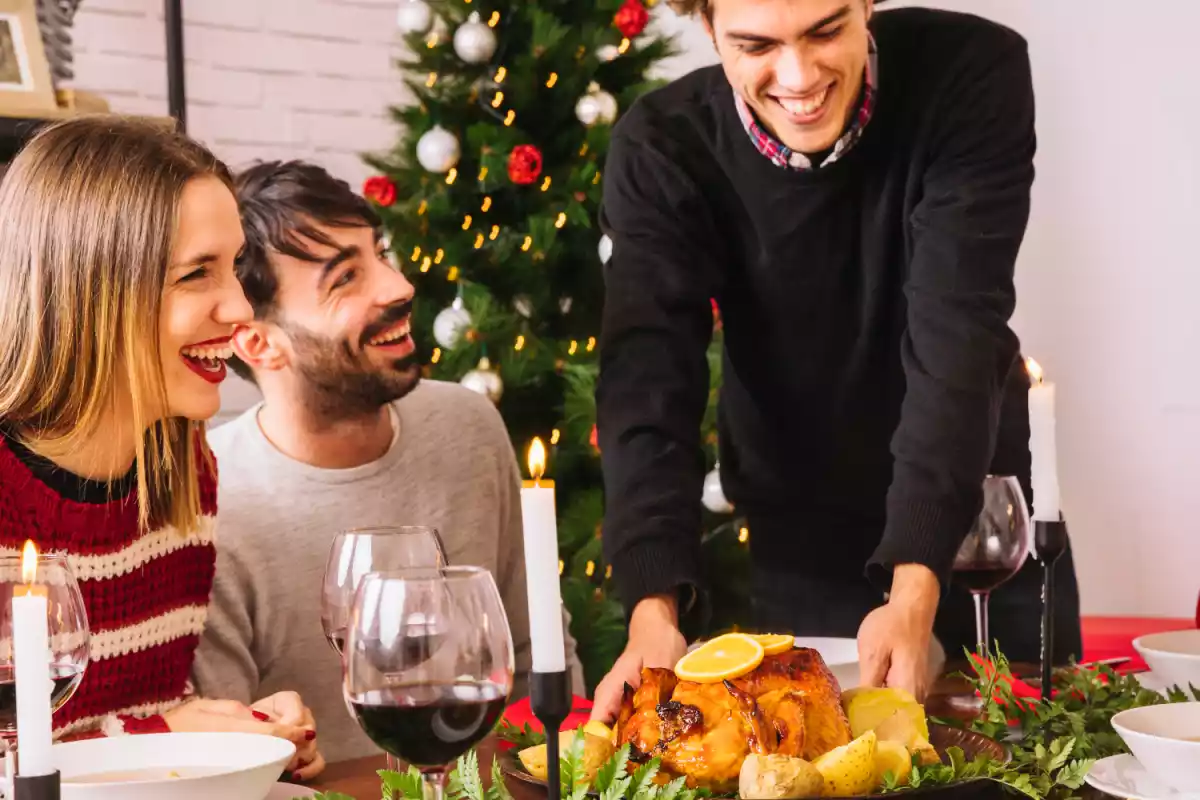9 must-know tips to avoid falling into the trap of cooking too much for Christmas!

Christmas is a time for celebration, togetherness and, of course, good food. However, it's also a time when many people end up spending too much time and energy in the kitchen, preparing dishes that aren't always eaten. Cooking more than is necessary can lead to food waste, increased costs and take away precious moments with your loved ones. So how can you avoid falling into the trap of cooking too much at Christmas? Here are some practical tips to make this task more balanced and enjoyable.
1. Plan the menu in advance
Careful planning is essential to avoid excesses. Before you go shopping, decide which dishes will be served and how many people will attend. Make a list of the necessary ingredients and follow it strictly. Choosing recipes you already know helps avoid last-minute surprises that can lead to unnecessary "extras" being prepared.
2. Calculate portions correctly
One of the most common mistakes is underestimating or overestimating your guests' appetites. Use a portion calculator to get an idea of how much to prepare. For example:
- Meat: 7-10.5 oz/200-300g per person.
- Side dishes (rice, farofa, salads): around 5-7 oz/150-200g per person.
- Desserts: 1 to 2 small portions per guest.
Remember that with the variety of Christmas dishes, people usually eat small portions of each item.
3. Simplify the menu
Avoid the temptation to over-indulge. A leaner menu, with fewer options, is usually just as satisfying and less stressful for the cook. Choose dishes that are versatile and will please most guests. A good roast, two side dishes and an outstanding dessert can be enough for a memorable Christmas.
4. Delegate tasks
Cooking alone is stressful and increases the chances of over-preparing. Turn supper into a collaborative event: ask guests to bring a dish or drink. As well as easing your workload, this enriches the table with different flavors and cooking styles.
5. Reuse ingredients
When planning the menu, prioritize recipes that use common ingredients, avoiding waste. For example, if you're making a roast turkey, the stuffing could include giblets from the bird, and the salad could use leftover vegetables. Think strategically to maximize the use of food.
6. Use small containers
Serving dishes in smaller plates helps to avoid overdoing it with the amount put on the table at one time. You can replenish the dishes as needed, and what isn't eaten can be stored safely for another time.
7. Watch out for desserts
Too many desserts is one of the biggest culprits of Christmas waste. Choose one or two main options and, if possible, smaller versions. Cakes, pies and puddings can be prepared in individual portions to avoid bulky leftovers.
8. Have a plan for leftovers
Even with the best planning, leftovers are common. To avoid waste, prepare containers to store food properly and safely. Also, use the leftovers to create new dishes for the following days, such as sandwiches, risottos and pies.
9. Focus on what really matters
Christmas doesn't have to be defined by the amount of food served. Value the time spent with the people you love. Cooking in a simpler, more practical way allows you to get involved in the celebrations and enjoy every special moment.
Conclusion
Cooking for Christmas doesn't have to be an exhausting task or lead to excess. With careful planning, well-calculated portions and a lean menu, you can guarantee a delicious and balanced dinner. That way, you'll have more time and energy to enjoy what really matters: the company of those you love. After all, the Christmas spirit goes far beyond a bountiful table.
Read more
 Mirella Mendonça
Mirella Mendonça



Comments